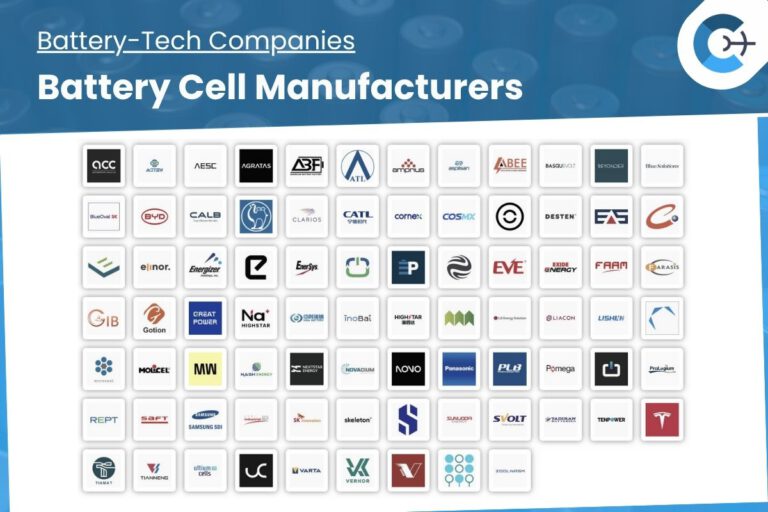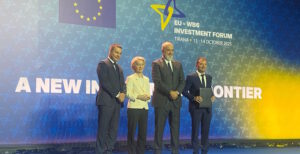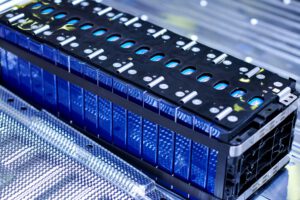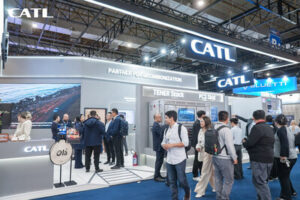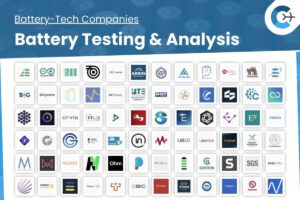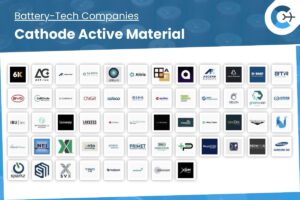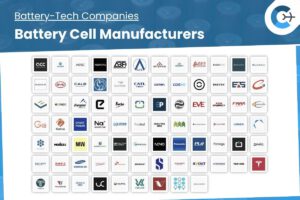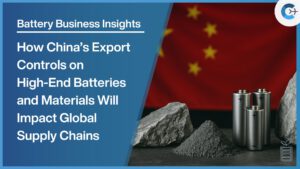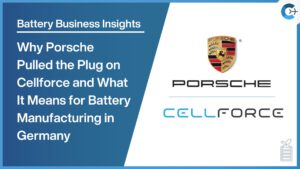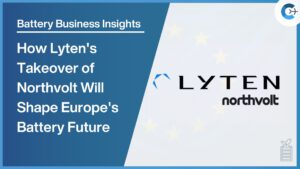Key Players in Battery Cell Manufacturing

Morrow Batteries
Morrow Batteries, founded in 2020 in Norway, develops sustainable Lithium Iron Phosphate and Lithium Nickel Manganese Oxide batteries for various energy storage applications. Aiming for 43 GWh production by 2028, they prioritize renewable energy and traceable supply chains.

Voltaplex Energy
Voltaplex Energy, a United States and Hong Kong-based lithium-ion battery manufacturer and supplier, delivers wholesale cells and custom battery packs supporting diverse industrial applications and clean energy for light electric mobility, robotics, medical devices, energy storage, and high-performance electronics.

Skeleton Technologies
Skeleton Technologies, founded in Estonia in 2009, specializes in advanced energy storage solutions using Curved Graphene. Offering supercapacitors and SuperBattery technology, they serve automotive, grid, and industrial sectors. With high energy density and eco-friendly designs, their manufacturing facilities in Germany and Estonia support global demand.
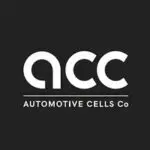
ACC – Automotive Cells Company
Automotive Cells Company (ACC), founded in 2020 by Stellantis, Mercedes-Benz, and TotalEnergies, advances sustainable EV battery technologies in Europe. Specializing in lithium-ion and lithium iron phosphate cells, ACC focuses on innovation, environmental responsibility, and large-scale production to support the global transition to electric vehicles.
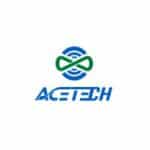
ACE BATTERY CO. LTD.
Founded in 2014 in Shenzhen, ACE Battery Co. Ltd. delivers advanced lithium-ion batteries and energy storage systems for EV, industrial, and commercial applications. Advanced technology and high safety standards propel its global clean energy goal.
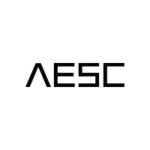
AESC
AESC, founded in 2007 in Japan, is a global leader in high-performance electric vehicle batteries and energy storage systems. Partnering with BMW, Mercedes-Benz, and Nissan, AESC delivers advanced, high-density, fast-charging solutions using sustainable practices. Recently acquired by Franklin Energy and expanding with a Kentucky gigafactory, the company emphasizes innovation and eco-friendly manufacturing.
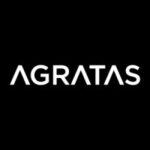
Agratas
Agratas, a Tata Group subsidiary, leads in next-generation battery technologies for electric vehicles and energy storage. Committed to sustainability and net-zero goals, Agratas utilizes advanced cell chemistry, rapid charging, and circular manufacturing processes, with production launching in the UK and India by 2026.
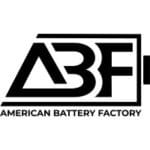
American Battery Factory Inc.
American Battery Factory (ABF), established in 2021 in Utah, produces advanced Lithium Iron Phosphate (LFP) and LMFP battery cells for residential, commercial, and defense applications. With a $1.2 billion gigafactory underway in Tucson, ABF delivers sustainable, long-lasting energy storage solutions to enhance U.S. energy independence.

Amperex Technology Limited ATL
Amperex Technology Limited (ATL), established in 1999 and a TDK subsidiary, is a global leader in high-quality lithium-ion batteries for consumer electronics. Supplying major brands like Apple and Samsung, ATL excels in innovative technologies such as fast-charging and customizable battery designs, supported by extensive R&D and worldwide manufacturing.
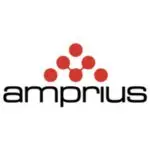
Amprius Technologies Inc.
Amprius Technologies Inc., founded in 2008 and based in Fremont, California, is a leading manufacturer of high-energy lithium-ion batteries using advanced silicon nanowire anode technology. Achieving up to 500 Wh/kg, Amprius serves electric vehicles, aviation, and portable electronics sectors. Listed on the NYSE as AMPX since 2022, the company is expanding its manufacturing to meet growing demand.
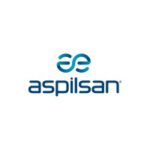
ASPILSAN Enerji
ASPILSAN Enerji Industry and Trade Inc., founded in 1981, is a leading battery manufacturer specializing in advanced lithium-ion and next-gen power systems. The company drives innovation across aerospace, defense, renewable energy, and medical sectors.
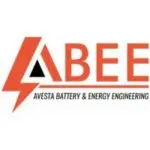
Avesta Battery & Energy Engineering (ABEE)
Avesta Battery & Energy Engineering (ABEE), based in Ninove, Belgium, specializes in advanced lithium-ion and solid-state batteries for automotive and stationary applications. Founded in 2019, ABEE leverages AI and advanced modeling to optimize performance and sustainability across the battery value chain, positioning itself as a key player in the European battery ecosystem through innovative projects and large-scale production.
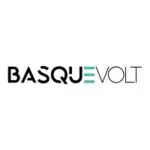
BASQUEVOLT
Basquevolt, based in Vitoria-Gasteiz, Spain, develops advanced solid-state lithium batteries for electric vehicles, energy storage, and portable devices. Backed by major investors like the Basque Government and Iberdrola, Basquevolt offers safer, higher-density, and sustainable battery solutions.

Beyonder
Beyonder AS, established in 2016 in Sandnes, Norway, develops sustainable high-capacity battery solutions using proprietary Lithium-Ion Capacitor technology. Their eco-friendly, efficient batteries support renewable energy, maritime transport, and electric infrastructure, driving the global green transition.

Blue Solutions
Blue Solutions, a subsidiary of the Bolloré Group since 1997, specializes in solid-state lithium metal polymer batteries. With over 600 million kilometers powered and advanced GEN4 technology, they provide safe, high-density, and sustainable energy solutions for transportation, aviation, and consumer goods through strategic partnerships and ongoing innovation.
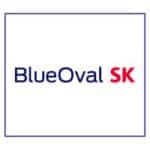
BlueOval
BlueOval SK, a 2022 joint venture between Ford and SK On, manufactures advanced lithium-ion batteries for electric vehicles in Kentucky and Tennessee. With an $11.4 billion investment, the company leverages innovative technology to support sustainable transportation and create over 7,500 jobs.

BYD
BYD Company Ltd., founded in 1995 in Shenzhen, China, is a global leader in electric vehicles and sustainable energy solutions. With nearly 900,000 employees worldwide, BYD specializes in EVs, advanced battery technologies like Blade and Cell-to-Pack, and rail transit systems, leveraging vertical integration for quality and efficiency.
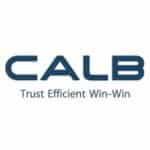
CALB Group Co. Ltd.
Founded in 2007 and based in Changzhou, CALB Group Co., Ltd. is a leading Chinese manufacturer of advanced lithium-ion batteries for electric vehicles and energy storage systems. Renowned for innovations like U-structure and solid-state technologies, CALB serves global automotive and industrial clients through a strong focus on R&D and manufacturing excellence.

Camel Group Co..Ltd. (International)
Founded in 1980, Camel Group Co., Ltd. is Asia’s largest car battery manufacturer and a global leader in battery technology. Specializing in lead-acid and lithium-ion batteries for automotive and energy storage applications, the company operates over 30 subsidiaries worldwide, serving markets across Europe, America, Africa, and Southeast Asia.
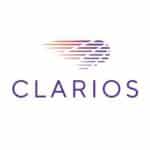
Clarios
Clarios, headquartered in Milwaukee, Wisconsin, is a global leader in advanced battery technologies, producing over 150 million batteries annually. As a subsidiary of Brookfield Business Partners, Clarios offers AGM, lithium-ion, and xEV batteries for automotive and diverse industries across more than 100 countries. The company focuses on sustainable practices and innovative energy storage solutions, including electric and hybrid vehicle applications.
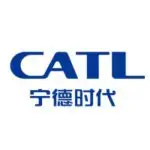
Contemporary Amperex Technology Co. Limited (CATL)
CATL, a global leader in battery technology since 2011, is based in Ningde, China and stands as the world’s largest EV battery producer. It’s celebrated for its innovative LFP batteries and pioneering cell-to-pack process, driving sustainable energy storage and electric vehicle advancements.

CORNEX NEW ENERGY
CORNEX NEW ENERGY (founded 2021, Xiaogan, China) manufactures large-format LFP cells and modular energy storage systems for EVs, grid storage, commercial fleets, and home systems. Notable products include 588Ah cells, safety platforms, and containerized ESS.
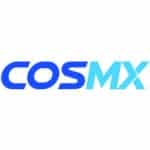
COSMX
COSMX, founded in 2007 in Zhuhai, China, specializes in developing and manufacturing high-performance lithium-ion batteries for consumer electronics, automotive, and industrial applications. Renowned for energy density and safety, COSMX is expanding globally and backed by major investors.

CustomCells
CustomCells, a leading German manufacturer founded in 2012, specializes in premium lithium-ion battery technology for automotive, aviation, and maritime sectors. Offering solutions like ultra-fast silicon-dominant batteries and modular designs, they serve over 500 clients. Combining innovative research with efficient manufacturing, CustomCells delivers high-performance, customizable battery systems.
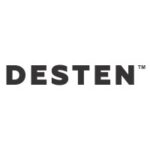
DESTEN Inc.
Based in Palo Alto, DESTEN Inc. specializes in high-performance lithium-ion batteries with ultra-fast charging for electric mobility and sustainable energy storage. Scaling to 2.9 GWh, DESTEN offers advanced NMC and LFP cells and integrated battery management systems, enhancing electric vehicles and renewable energy solutions.
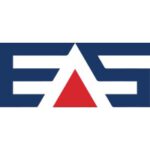
EAS Batteries GmbH
EAS Batteries GmbH, founded in 1996 in Nordhausen, Germany, specializes in high-performance lithium-ion battery systems for maritime, aerospace, construction, defense, and stationary power applications. Utilizing advanced XNO technology and customized BMS, they deliver reliable, energy-dense solutions with a 10 MWh annual capacity.
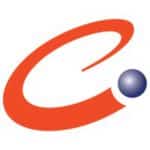
Electrovaya
Electrovaya Inc. (ELVA), founded in 1996 and listed on NASDAQ and TSX, is a North American leader in lithium-ion battery technology. Their proprietary Infinity Battery Technology delivers safe, efficient, and long-lasting energy solutions for industrial vehicles, energy storage, and transportation sectors.

ElevenEs
ElevenEs, a European leader in Lithium Iron Phosphate (LFP) batteries, manufactures the EDGE cobalt- and nickel-free cells in Serbia. Founded in 2021, their sustainable, high-performance batteries serve electric vehicles and large-scale energy storage, backed by Al Pack Group and EIT InnoEnergy.
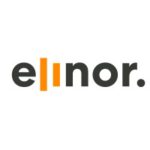
Elinor Batteries
Elinor Batteries plans to build a 40 GWh sustainable Lithium Iron Phosphate battery plant near Trondheim, Norway, starting in 2026. They serve the European energy storage market for electric vehicles and industrial applications using 100% renewable energy and Nordic minerals, with Valinor’s significant investment.
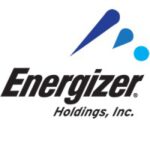
Energizer Holdings
Energizer Holdings, Inc. is a global leader in consumer products with over 125 years of innovation. Specializing in advanced battery technology and efficient lighting, it powers automotive, consumer, and industrial markets with sustainable solutions.

Enerpoly
Enerpoly AB, based in Stockholm, develops sustainable zinc-ion batteries using zinc and manganese. Their safe, non-toxic energy storage solutions enhance renewable energy integration and grid stability. With patented technology and the EPIC megafactory, they aim for scalable production by 2026.
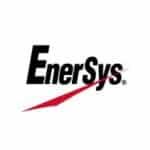
EnerSys
EnerSys, headquartered in Reading, PA, is a global leader in stored energy solutions, offering advanced batteries and power equipment for sectors like telecommunications, transportation, aerospace, defense, and medical. Operating in over 100 countries, EnerSys drives innovation in lithium-ion and lead-acid technologies.

ENOVIX Corporation
Enovix Corporation, based in Fremont, CA, develops high-energy-density silicon-anode lithium-ion batteries using proprietary 3D cell architecture. Serving consumer electronics and wearables, they target applications in electric vehicles and energy storage. Publicly traded on Nasdaq (ENVX) since 2021.

EnPower Inc.
EnPower Inc., based in Indianapolis, is a leading American battery manufacturer specializing in high-performance lithium-ion technology. Their patented multilayer electrodes enable ultra-fast charging and long-term performance for automotive, marine, and military applications. Award-winning and investor-backed, EnPower drives electric mobility with innovative energy solutions.

Envision Energy
Founded in 2007, Envision Energy is a leading Chinese multinational specializing in renewable solutions such as advanced wind turbines, energy storage systems, and green hydrogen technologies. With over 30 GW of global wind capacity and key automotive partnerships, Envision drives sustainable innovation worldwide.

EVE Energy
EVE Energy Co., Ltd., founded in 2001 in Huizhou, China, is a leading lithium-ion battery manufacturer. Specializing in batteries for electric vehicles, energy storage, and consumer electronics, it partners with brands like BMW and Tesla. With global production facilities and a focus on innovation and sustainability, EVE Energy advances battery technology to support the clean energy transition.

Exide Energy Solutions Ltd
Exide Energy Solutions Ltd, founded in 2022 as a subsidiary of Exide Industries, manufactures advanced lithium-ion cells and battery systems for automotive and industrial energy storage. Based in Bengaluru, EESL is developing a 12 GWh facility using cutting-edge technology and strategic partnerships to support sustainable energy solutions.
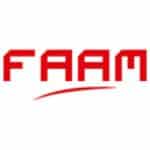
FAAM – Energy Saving Battery
FAAM, founded in 1974 and part of Seri Industrial S.p.A., is Italy’s leading battery manufacturer specializing in lithium-ion and lead-acid batteries. Operating Southern Europe’s first lithium Gigafactory, FAAM provides sustainable, vertically integrated solutions for automotive, energy storage, industrial, and military applications.

Farasis Energy
Farasis Energy, established in 2002 in Silicon Valley, develops and manufactures advanced lithium-ion and solid-state batteries. Specializing in high-energy pouch cells for electric vehicles and sustainable power storage, they serve automotive, industrial, and energy sectors with innovative, high-performance solutions.

GIB EnergyX
GIB EnergyX is a Slovakia‑based joint venture of InoBat and Gotion High‑Tech that licenses LFP cell technology and supports gigafactory setup for prismatic and cylindrical cells used in EVs and grid storage, enabling regional manufacturing scale‑up.
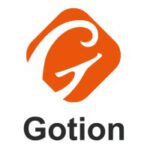
Gotion Inc.
Gotion Inc., founded in 2006 and a subsidiary of Gotion High-tech, specializes in manufacturing LFP and NCM power batteries and energy storage systems. Leveraging innovations like Gemstone and G-Current batteries, the company supports electric vehicles and sustainable energy solutions globally, backed by strong R&D and extensive patents.

Great Power
Established in 2001 and listed on the Shenzhen Stock Exchange, Guangzhou Great Power Energy & Technology is a global leader in battery manufacturing. Specializing in lithium-ion, solid-state, and sodium-ion technologies, it serves energy storage, new energy vehicles, and electronics markets in over 50 countries. Recognized by BloombergNEF as a Tier 1 manufacturer, Great Power emphasizes innovation and safety.

Highstar Sodium-ion Battery
Jiangsu Highstar Battery Manufacturing Co., Ltd. is a Chinese national high-tech enterprise specializing in sodium-ion battery research, production, and distribution. With over 2,500 employees and global facilities, Highstar delivers innovative, cost-effective, and sustainable energy storage solutions for industrial vehicles, backup power, and more.

HiNa Battery Technology Co. Ltd.
HiNa Battery Technology, founded in 2017 as a spin-off from the Chinese Academy of Sciences, specializes in advanced sodium-ion batteries for electric vehicles and energy storage. Leveraging over 30 patents and achieving up to 155 Wh/kg, HiNa offers safe, cost-effective alternatives to lithium-ion solutions.

InoBat
InoBat, founded in 2019 in Bratislava, Slovakia, is a European battery technology company specializing in customized lithium-ion solutions for automotive, commercial, motorsport, and aerospace industries. Leveraging advanced nickel-rich chemistries and silicon-based anodes, InoBat delivers high energy density, safety, and tailored performance through its state-of-the-art manufacturing facilities.
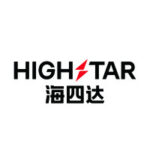
Jiangsu Highstar Battery Manufacturing Co..Ltd
Jiangsu Highstar Battery Manufacturing Co., Ltd., founded in 1994 in Qidong, China, specializes in lithium-ion, lithium iron phosphate, and sodium-ion batteries. Serving electric vehicles, energy storage, and power tools, Highstar produces billions of cells annually across multiple facilities. Renowned for innovation and strategic growth, the company holds a strong global presence in advanced battery solutions.

Leclanché SA
Leclanché SA is a Swiss leader in energy storage solutions, specializing in advanced lithium-ion technology and custom systems for transportation, utilities, and industry. With proprietary cell designs and sustainable manufacturing, they offer integrated solutions from cell production to system integration.
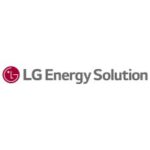
LG Energy Solution
Founded in 2020 as an LG Chem spin-off, LG Energy Solution is a global leader in lithium-ion battery manufacturing for electric vehicles, energy storage, and portable devices. Leveraging over 30 years of expertise and advanced technologies, the company delivers high-performance, sustainable energy solutions through strategic partnerships worldwide.
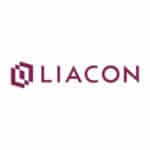
Liacon GmbH
Founded in 2014 and based in Ottendorf-Okrilla, Germany, Liacon GmbH is a leading industrial lithium-ion battery manufacturer. Specializing in high-performance Lithium-Iron-Phosphate (LFP) technology, they produce over one million cells annually for automotive, marine, and industrial applications.
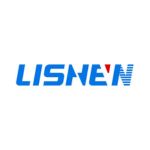
LISHEN
LISHEN, headquartered in Tianjin, China, is a state-backed leader in lithium-ion battery innovation. The company advances sodium-ion and semi-solid cell technologies, powering EVs, consumer electronics, and grid-scale energy storage.

Lyten
Lyten, based in San Jose, specializes in lithium-sulfur batteries using proprietary 3D Graphene technology. Offering double the energy density of lithium-ion and reduced environmental impact, their sustainable solutions serve automotive, aerospace, and energy sectors. Lyten is expanding production with a Nevada gigafactory and has strong investor backing.
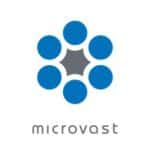
Microvast
Microvast Holdings, Inc., based in Stafford, Texas, is a global leader in lithium-ion battery technology since 2006. Specializing in high-performance solutions like All-Solid-State Batteries, Microvast serves transportation and utility-scale energy storage markets across 34 countries. Their vertically integrated approach ensures rapid-charging and long-lasting energy systems.
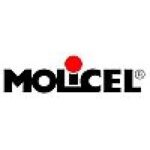
Molicel
Established in 1998 with roots dating back to 1977, Molicel (E-One Moli Energy Corporation) leads in advanced cylindrical lithium-ion cells. Its technology delivers ultra-high power, fast charging, and thermal stability for diverse applications.
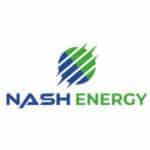
Nash Energy
Nash Energy, a pioneer in battery manufacturing within the Nash Group, specializes in advanced lithium-iron phosphate technology for EVs and stationary storage. Operating from Bengaluru, they deliver reliable, cost-effective energy solutions.
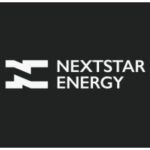
NextStar Energy
NextStar Energy, a joint venture between LG Energy Solution and Stellantis, is Canada’s first large-scale lithium-ion battery manufacturer. Located in Windsor, Ontario, the $5 billion facility will produce 49.5 GWh annually, powering 450,000 EVs. Focused on sustainability and innovation, NextStar Energy supports North America’s electric vehicle industry growth.
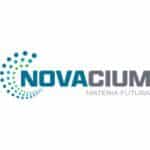
Novacium SAS
Novacium SAS, founded in 2022 in Solaize, France, is a materials science startup advancing silicon-based anode technology for high-performance lithium-ion batteries and innovative hydrogen production through recycling improvements.
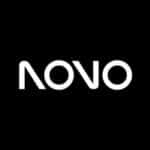
NOVO Energy
NOVO Energy AB, based in Gothenburg, Sweden, specializes in sustainable lithium-ion batteries for electric vehicles. Owned by Volvo Cars, the company is constructing a 50 GWh gigafactory powered entirely by renewable energy, advancing next-generation EV solutions.

Panasonic
Panasonic Holdings Corporation, founded in 1918 in Osaka, is a global electronics leader specializing in consumer electronics, automotive systems, and industrial solutions. Committed to sustainability, Panasonic advances EV battery technology, clean energy, and innovative energy management systems.

PLB Battery
PLB Battery (Dongguan Power Long Battery Technology Co., Ltd.) is a premier Chinese manufacturer of advanced 26650 LiFePO₄ and NCM lithium batteries. Specializing in high-performance cells and battery packs, they serve global markets in energy storage, electric vehicles, and various innovative applications with certified quality and cutting-edge technology.
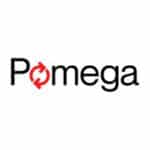
Pomega Energy Storage Technologies
Pomega Energy Storage Technologies, a Kontrolmatik subsidiary, manufactures advanced lithium iron phosphate (LFP) batteries in the US and Turkey. Serving utility, commercial, industrial, and residential markets, Pomega delivers safe, reliable energy solutions to support the renewable energy transition.

PowerCo
PowerCo, a Volkswagen Group subsidiary founded in 2022 in Salzgitter, Germany, specializes in sustainable battery cell manufacturing for electric and commercial vehicles. Leveraging the Unified Cell concept and advanced solid-state technology, PowerCo targets 200 GWh annual production while upholding strict environmental standards.
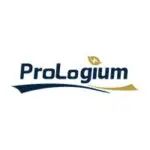
ProLogium Technology
ProLogium Technology, founded in 2006 in Taoyuan, Taiwan, leads in solid-state lithium ceramic batteries. As the only mass producer, its high-energy, fast-charging solutions power EVs, consumer electronics, and industrial applications. With over 900 patents and global partnerships, ProLogium drives sustainable energy innovation.

REPT BATTERO
Founded in 2017, REPT BATTERO Energy Co., Ltd. is a leading Chinese manufacturer of lithium-ion batteries and energy storage solutions. As part of Tsingshan Industrial, the company boasts a 62 GWh production capacity and specializes in advanced Wending series and solid-state batteries for electric vehicles and smart energy systems, establishing a strong global presence.
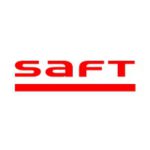
Saft
Established in 1918 and part of TotalEnergies, Saft is a global leader in advanced industrial batteries. With 15 sites and over 3,000 employees, they provide innovative lithium-ion and nickel-based solutions for aerospace, defense, energy storage, mobility, and industrial applications.
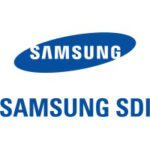
Samsung SDI
Samsung SDI, founded in 1970, is a global leader in advanced battery technologies and electronic materials. Specializing in lithium-ion and solid-state batteries, it serves electric vehicles, consumer electronics, and energy storage systems, driving innovation and sustainable energy solutions worldwide.
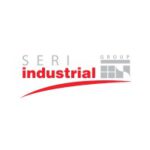
SERI Industrial Spa
SERI Industrial S.p.A., founded in 1999 in Italy, excels in advanced lithium-ion and lead-acid battery production, recycling, and energy storage solutions, integrating circular economy principles for sustainable industrial applications.
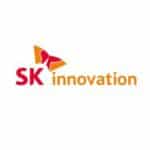
SK Innovation
SK Innovation, a leading South Korean energy solutions provider, specializes in sustainable energy and advanced battery technologies. Through subsidiaries like SK On, it excels in EV battery manufacturing, solid-state and cobalt-free batteries, and invests in renewable energy, maintaining a strong global presence.

StarPlus Energy
StarPlus Energy, founded in 2022 as a Samsung SDI and Stellantis joint venture, manufactures advanced NCA lithium-ion EV batteries in Kokomo, Indiana. Backed by over $6.3 billion and producing 67 GWh annually, they support North America’s transition to sustainable transportation.

Sunwoda Energy Technology Co.. Ltd.
Sunwoda Energy Technology, a Sunwoda Group subsidiary founded in 1997, is a leading global energy storage provider. Operating in over 100 countries with 50,000+ employees, they develop advanced lithium-ion systems for residential, commercial, and utility-scale applications, promoting sustainable energy solutions worldwide.

Svolt
SVOLT Energy Technology Co., Ltd. leads in advanced battery design, manufacturing innovative cells, modules, and storage systems. Its Short Blade and next-gen battery chemistries accelerate EV charging and sustainable energy applications globally.

Tadiran Batteries Ltd
Since 1963, Tadiran Batteries Ltd has been a global leader in specialized lithium batteries for industrial applications. Their advanced Lithium Thionyl Chloride and rechargeable technologies power sectors like automotive, medical, aerospace, and IoT, ensuring ultra-long-life and reliable performance in extreme conditions.
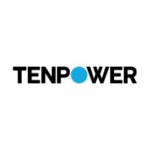
Tenpower
Tenpower, officially Jiangsu Tenpower Lithium Co., Ltd., is a leading manufacturer of cylindrical lithium-ion cells. Using advanced 18650 and 21700 technologies for power tools, micro-mobility, and energy storage, it drives global innovation.

Tesla
Founded in 2003 and led by Elon Musk, Tesla is a leading American multinational specializing in electric vehicles, battery storage, and solar energy. Utilizing advanced technologies like 4680 batteries and a direct-to-consumer model, Tesla drives innovation and sustainability in the clean energy sector.
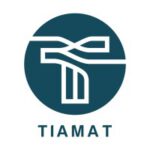
Tiamat Energy
Tiamat Energy, founded in 2017 in Amiens, France, develops sustainable sodium-ion batteries for mobility and stationary storage. Utilizing abundant materials, their Gen1 and Gen2 technologies offer high performance and safety. Backed by major investors, Tiamat is expanding to large-scale European production.
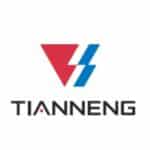
Tianneng
Tianneng Holding Group, founded in 1986, is a global leader in battery manufacturing and sustainable energy solutions. Operating in 18 countries, it drives lithium-ion, lead-acid, and sodium-ion solutions for electric vehicles and grid storage.
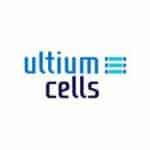
Ultium Cells LLC
Ultium Cells LLC, a joint venture between General Motors and LG Energy Solution, manufactures advanced large-format battery cells for electric vehicles. Utilizing NCMA chemistry and a wireless Battery Management System, the company supports North America’s EV transition with scalable production facilities and innovative technology.

UniverCell Holding GmbH
UniverCell Holding GmbH, based in Flintbek, Germany, is Europe’s largest premium battery Gigafactory. Specializing in custom electrode foils, pouch, and cylindrical cells with a 1.5 GWh capacity, they leverage advanced Neocarbonix™ technology. Serving industries like renewable energy, e-mobility, and electric flight, UniverCell delivers high-quality, eco-friendly battery solutions.
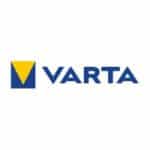
VARTA AG
VARTA AG, founded in 1887, is Germany’s leading global manufacturer of innovative battery solutions and energy storage systems. Specializing in lithium-ion, microbatteries, and household batteries, VARTA serves over 75 countries with products for automotive, industrial, and consumer applications.

Verkor
Founded in 2020 in France, Verkor manufactures low-carbon lithium-ion batteries with silicon anodes for electric vehicles and renewable energy. Utilizing advanced, sustainable processes, their Gigafactory in Bourbourg targets 16 GWh capacity. Backed by major investors, Verkor drives eco-friendly mobility through innovative technology.

Vision Battery
Vision Battery, a division of Vision Group (002733) since 1994, is a leading manufacturer of VRLA and Lithium-ion batteries. With facilities in China and Vietnam, it supplies innovative energy solutions to over 100 countries, serving sectors like telecommunications, renewable energy, and data centers. Committed to R&D and quality standards, Vision Battery drives global expansion.
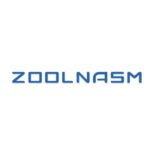
Zoolnasm
Zoolnasm, established in 2021 in Suzhou, leads sodium-ion battery innovation. The company develops low-cost, high-performance energy storage and electric mobility solutions through advanced R&D and integrated production for sustainable energy progress.
Battery Cell Manufacturer Technology Overview
Battery cell manufacturing is an expanding and essential industry, supplying the core technology for electric vehicles (EVs), large-scale energy storage, and consumer electronics. The sector is defined by its intricate production methods, constant innovation, and intense global competition. Major producers, primarily based in Asia, set the pace for technological advancements that influence battery performance, safety, and cost worldwide. Firms like CATL, LG Energy Solution, and BYD are expanding their production capabilities to meet accelerating demand, particularly from the automotive industry.
Key Characteristics of the Technology
The production of a battery cell is a precision-dependent, multi-stage operation where control over materials and processes directly affects the final product’s quality and reliability. The manufacturing sequence is generally segmented into three main phases:
- Electrode Manufacturing: This initial phase prepares the cathode and anode. It begins with mixing active materials (like NMC or LFP for cathodes; graphite for anodes) with binders and conductive additives to create a uniform slurry. This slurry is then coated onto metal foils—aluminum for the cathode and copper for the anode—with exacting control over thickness and edge quality. The coated foils are dried to evaporate solvents and then calendered, or pressed through rollers, to achieve a specific thickness and porosity that is important for electrochemical performance.
- Cell Assembly: In this stage, the prepared electrodes are transformed into a cell structure. The large electrode rolls are first slit into narrower strips. After a final drying step to remove any residual moisture, the electrodes are cut into their final shape. Depending on the cell format, these electrodes are either wound into a “jelly roll” (for cylindrical cells) or stacked in alternating layers with a separator material (for pouch and prismatic cells). The process concludes with welding the electrode tabs to the cell terminals and enclosing the entire assembly in its casing—a metal can or a flexible pouch.
- Cell Finishing: The final phase activates the cell. A precise volume of electrolyte is injected into the cell, typically under a vacuum to ensure it fully wets the electrodes and separator. The cell then undergoes its first charge cycle, a process called formation, which creates the solid-electrolyte interphase (SEI). This layer is critical for the battery’s lifespan and safety. Gases produced during formation are removed before the cell is permanently sealed. The completed cells are then aged for a period under controlled temperatures to stabilize their chemistry before final quality checks.
Manufacturing a single cell is energy-intensive, consuming between 50 to 180 kWh of energy for every kWh of cell capacity produced.
Technology Classifications / Types
Battery cell technologies can be categorized based on their physical format, internal construction, and chemistry.
- Cell Formats:
- Cylindrical: These cells consist of electrodes wound into a spiral and housed in a metal can. They are common in many EV applications and offer good mechanical stability.
- Prismatic: These are rectangular cells, typically housed in a rigid metal case. Their construction can involve either winding or stacking electrodes.
- Pouch: These cells use a flexible, foil-like pouch as their container, offering design flexibility and high energy density by weight. They are constructed by stacking electrode and separator layers.
- Manufacturing Architectures:
- Cell-to-Pack (CTP): This approach, advanced by CATL, integrates cells directly into a battery pack, removing the intermediate module-level assembly. This design increases the volume of active material within the pack, improving energy density.
- Electrode-to-Pack (ETOP): A newer concept, pursued by companies like 24M Technologies, places electrodes directly into the pack structure. This further simplifies design by omitting the need for individual cells and modules.
- Dominant Chemistries:
- Lithium Iron Phosphate (LFP): Known for its long cycle life, thermal stability, and the use of more abundant materials.
- Nickel Cobalt Aluminum (NCA) & Nickel Manganese Cobalt (NMC): These chemistries offer higher energy density, making them suitable for long-range EVs.
- Lithium Manganese-Rich (LMR): An emerging chemistry as that offers higher energy density than LFP while using less expensive manganese.
Development and Commercialization Challenges
Manufacturers face technical and economic hurdles throughout the production process. Solving these is necessary for improving battery performance and reducing costs.
- Process Control and Contamination: Maintaining slurry homogeneity, uniform coating thickness, and burr-free edges during slitting are persistent difficulties. Any metallic particle contamination or damage to the separator can cause internal short circuits, creating a safety risk.
- Throughput and Yield: Balancing production speed with quality is a primary concern. The formation and ageing steps are particularly time-consuming and tie up significant capital in inventory, representing approximately one-third of the equipment cost for a gigafactory.
- Cost and Scalability: High capital expenditures are required to build and equip battery plants. The cost of new technologies, such as solid-state batteries, remains a barrier to widespread adoption. Solid-state cells currently cost between $400–$600 per kWh (by 2025), compared to $50–$150 per kWh for conventional lithium-ion cells.
- Material Science and Performance: A continual push exists for materials that offer higher energy density, faster charging capabilities, and improved safety. For example, solid-state batteries promise greater safety by removing flammable liquid electrolytes, but developing a solid electrolyte with sufficient ionic conductivity remains a technical obstacle.
Recent Developments and Examples
The industry is marked by rapid innovation from both established manufacturers and specialized research firms:
- LG Energy Solution and General Motors: Collaborating to commercialize lithium manganese-rich (LMR) prismatic cells. These cells are projected to have 33% higher energy density than LFP cells and will be used in future GM electric trucks, with commercial production slated for 2028.
- CATL: Continues to advance its Cell-to-Pack (CTP) technology, which improves energy density by optimizing pack structure. The company is also a producer of sodium-ion batteries, which offer an alternative to lithium-based chemistries.
- 24M Technologies: Developing its ETOP™ (Electrode-to-Pack) system. By integrating electrodes directly into the pack, this approach can increase the active material content to as much as 80% of the pack’s volume.
- ProLogium Technology: A leader in solid-state battery development, providing sample cells to automakers. These batteries offer the potential for energy densities between 350–700 Wh/kg, a notable increase from the 150–300 Wh/kg of current lithium-ion cells.
- Doshisha University (Japan): Researchers have developed a quasi-solid-state battery combining non-flammable solid and liquid electrolytes to enhance ionic conductivity, improve thermal stability, and extend battery life.

